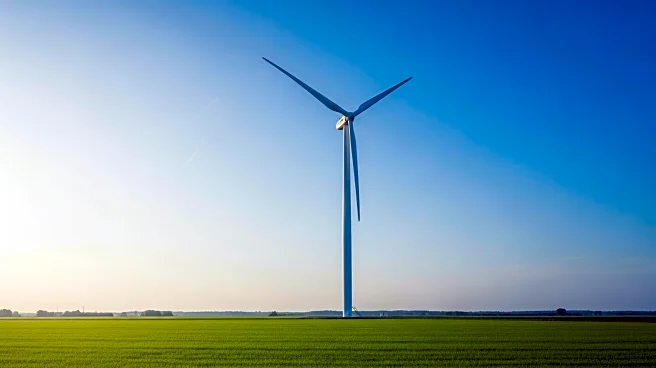What's Happening?
Democratic Representatives Sean Casten of Illinois and Mike Levin from California are set to introduce comprehensive energy legislation aimed at reversing policies from the Trump administration. The proposed bill seeks to restore clean energy tax credits and limit the Department of Energy's ability to declare 'energy emergencies' to prevent the retirement of fossil-fueled power plants. The legislation, known as the Cheap Energy Act, aims to reduce electricity costs by promoting energy efficiency, supporting grid-enhancing technologies, and facilitating access to lower-cost renewable energy projects. Additionally, the bill proposes increased oversight of regional transmission organizations (RTOs) to ensure decisions benefit consumers rather than incumbent transmission owners. The bill also includes provisions for investment tax credits for transmission lines, energy efficiency savings targets for utilities, and funding to address electricity transformer shortages.
Why It's Important?
The introduction of this bill is significant as it represents a shift towards clean energy and away from fossil fuels, which have been a focus of the Trump administration's energy policies. By promoting renewable energy and enhancing RTO oversight, the bill aims to lower electricity costs and improve grid reliability. This could lead to increased investment in renewable energy projects and technologies, benefiting consumers and the environment. However, the bill faces challenges in a Republican-controlled Congress, where leadership is inclined to support fossil fuel industries. The outcome of this legislative effort could have substantial implications for U.S. energy policy, market dynamics, and environmental sustainability.
What's Next?
The bill's sponsors are seeking Republican co-sponsors to increase its chances of passage, but face opposition from Republican leaders with ties to fossil fuel industries. The bill's progress will depend on political negotiations and potential shifts in congressional priorities. If passed, the legislation could lead to significant changes in energy policy, impacting utility companies, consumers, and the renewable energy sector. Stakeholders will be closely monitoring the bill's development and potential impacts on energy markets and regulatory frameworks.
Beyond the Headlines
The bill highlights ongoing debates about the role of fossil fuels in U.S. energy policy and the transition to renewable energy. It underscores the tension between economic interests and environmental concerns, as well as the challenges of balancing energy affordability with sustainability. The legislation also raises questions about the governance of RTOs and the need for transparency and accountability in energy decision-making processes.









